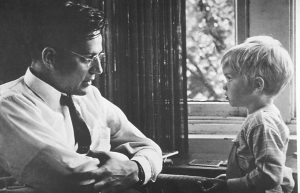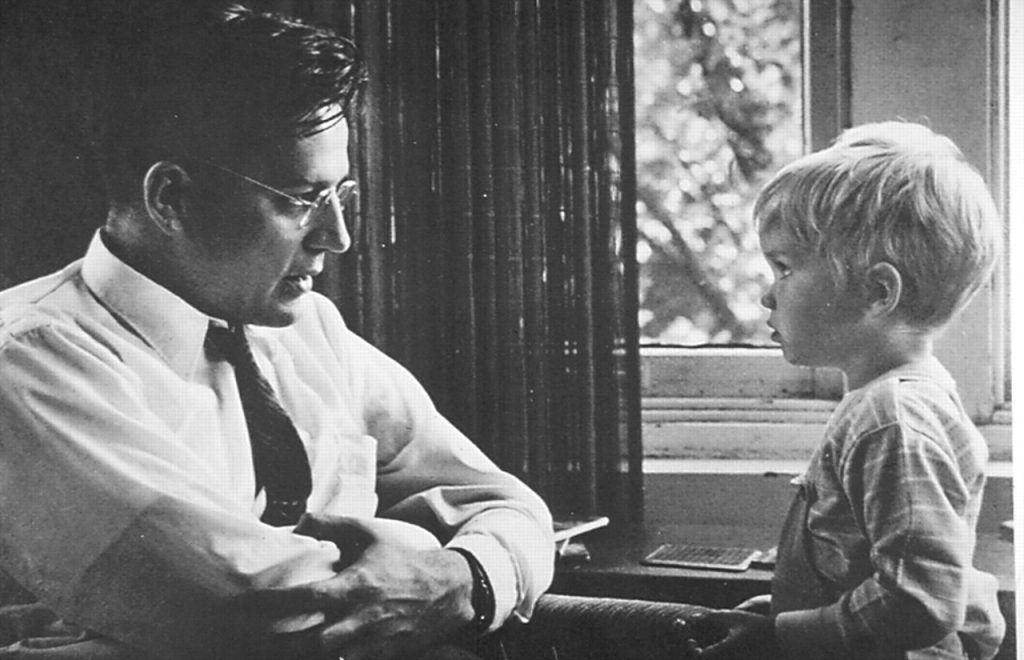Guest post by from Kenneth C. Burtis (University of California, Davis) and Mariana F. Wolfner (Cornell University).

We note with great sadness the death of one of the giants of 20th century genetics, David Swenson Hogness, who passed away in Stanford, California on December 24, 2019 at the age of 94. The title of this blog, Genes to Genomes, describes perfectly Dave’s position as one of the founders of the field of Drosophila molecular genetics. The rigorous and critical intellect that Dave brought to every endeavor, and the robust scientific training that he enjoyed as a graduate student with Herschel Mitchell at Caltech and as a postdoctoral fellow with Jacques Monod at the Pasteur Institute, situated him perfectly to take full advantage of the revolutionary developments in molecular biology taking place in the Department of Biochemistry at Stanford University in the 1960s and 1970s.
At the dawn of the age of recombinant DNA research, Dave and his lab turned powerful tools that were under development for prokaryotes and viruses to the classic genetic model organism Drosophila melanogaster. This revolutionized the field of Drosophila molecular biology, engendering a remarkable set of experiments that moved the field from genetics to genomics [detailed in Genetics 164(4):1243-45 (2003)]. Combining molecular tools with the long-studied polytene chromosomes of Drosophila, which provided the first whole-genome map of Drosophila DNA, Dave led his research group to a series of groundbreaking discoveries illuminating eukaryotic gene regulation, gene structure, and the molecular-genetic basis of development.
Dave left a lasting legacy to science, both in the record of his research accomplishments, as well as in the vast number of people influenced by his kind and agile mind and his generosity. These people included the nearly 100 members of his former lab and the researchers whom they subsequently trained, and the many colleagues around the world who were privileged to interact with Dave over the decades. Dave’s was a life well lived, as a person and as a scientist. He will be greatly missed.













